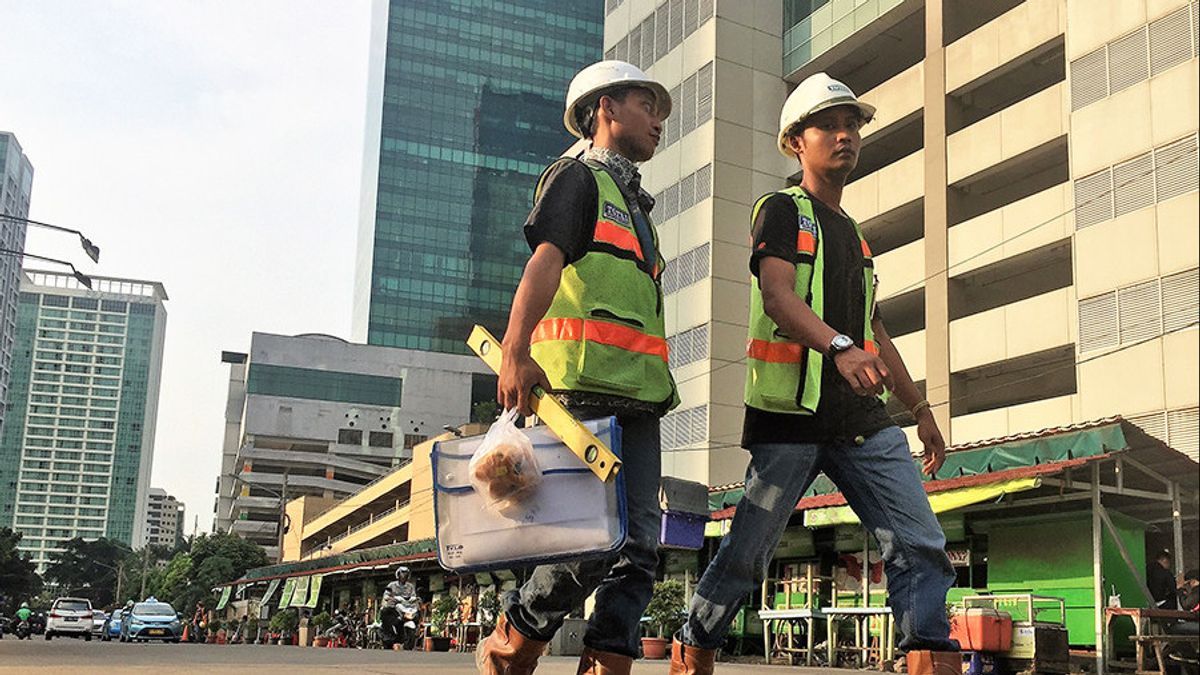JAKARTA - Bank Indonesia (BI) appreciates the rating agency Fitch by maintaining the Sovereign Credit Rating of the Republic of Indonesia at BBB (investment grade) with a stable outlook in its report on March 19, 2021.
According to Fitch, the key factors supporting the affirmation of Indonesia's rating are the good medium-term economic growth prospects and the low, albeit increasing, government debt burden.
On the other hand, Fitch said by BI underlined the challenges faced, namely the dependence on external sources of financing which is still high, low government revenue, and developments on the structural side such as governance indicators and GDP per capita that are still lagging behind other countries with the same rank.
The Governor of Bank Indonesia, Perry Warjiyo, stated that the affirmation of Indonesia's rating on the BBB rating with a stable outlook is a form of international stakeholder recognition for Indonesia's macroeconomic stability and medium-term economic prospects that are maintained amid the pandemic.
"This is supported by the credibility of policies and the synergy of the right policy mix both nationally and among the KSSK member institutions, namely Bank Indonesia, the Ministry of Finance, the Financial Services Authority, and the Deposit Insurance Corporation", he said in an official statement, Monday, March 22.
Perry added that in his assessment, Fitch estimates that Indonesia's economic growth will recover gradually, reaching 5.3 percent in 2021 and 6 percent in 2022. This recovery is driven by government stimulus and exports which are also supported by improvements in commodity prices.
The momentum for economic growth will be supported by infrastructure development. Recovery will also depend on dealing with the spread of the pandemic, particularly through accelerating vaccinations.
He revealed that in the medium term, Fitch projects that economic growth will be driven by the implementation of the Job Creation Law and the establishment of the Indonesia Investment Authority as a step to support infrastructure development financing in the next few years.
"Bank Indonesia and the government are committed to meeting the upper limit of the 3 percent fiscal deficit by 2023", he said.
On the revenue side, Fitch expects the government revenue ratio to improve gradually to 12.3 percent and 12.8 percent of GDP for 2021 and 2022 as the economy recovers, after recording a ratio of 12.1 percent in 2020. Fitch mentioned the impact of the pandemic on Indonesia's fiscal position is not as bad as its peers.
"Bank Indonesia's support for fiscal deficit financing has helped reduce interest costs and supported the acceleration of economic recovery. However, it should be emphasized that this step is temporary so that it does not pose a risk of lowering investor confidence in the credibility of monetary policy, "he said.
In response to the pandemic, BI has lowered policy rates by 150bps since early 2020, relaxed macroprudential policies, and added liquidity to the banking system. Foreign exchange reserves also increased to reach 138.8 billion US dollars at the end of February 2021 from 121 billion US dollars at the end of March 2020, as the current account deficit decreased from 2.7 percent of GDP in 2019 to 0.4 percent of GDP in 2020.
For information, Fitch previously maintained Indonesia's Sovereign Credit Rating at BBB with a stable outlook (Investment Grade) on August 10, 2020.
The English, Chinese, Japanese, Arabic, and French versions are automatically generated by the AI. So there may still be inaccuracies in translating, please always see Indonesian as our main language. (system supported by DigitalSiber.id)











